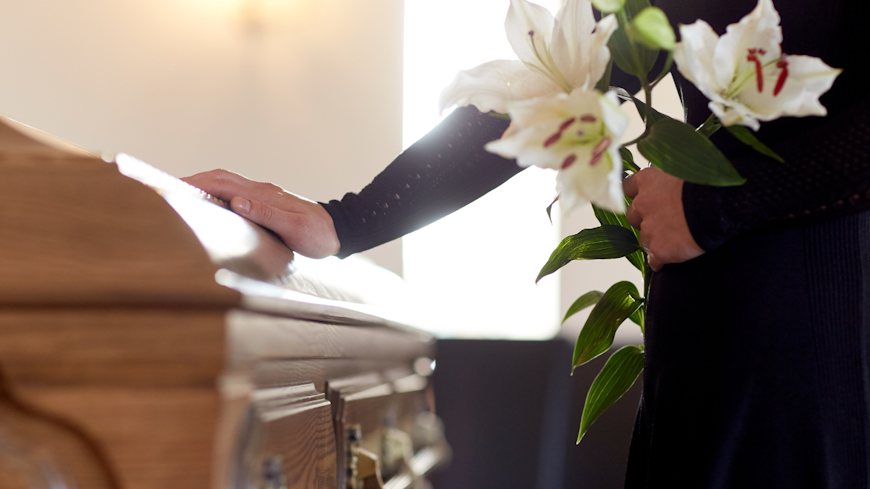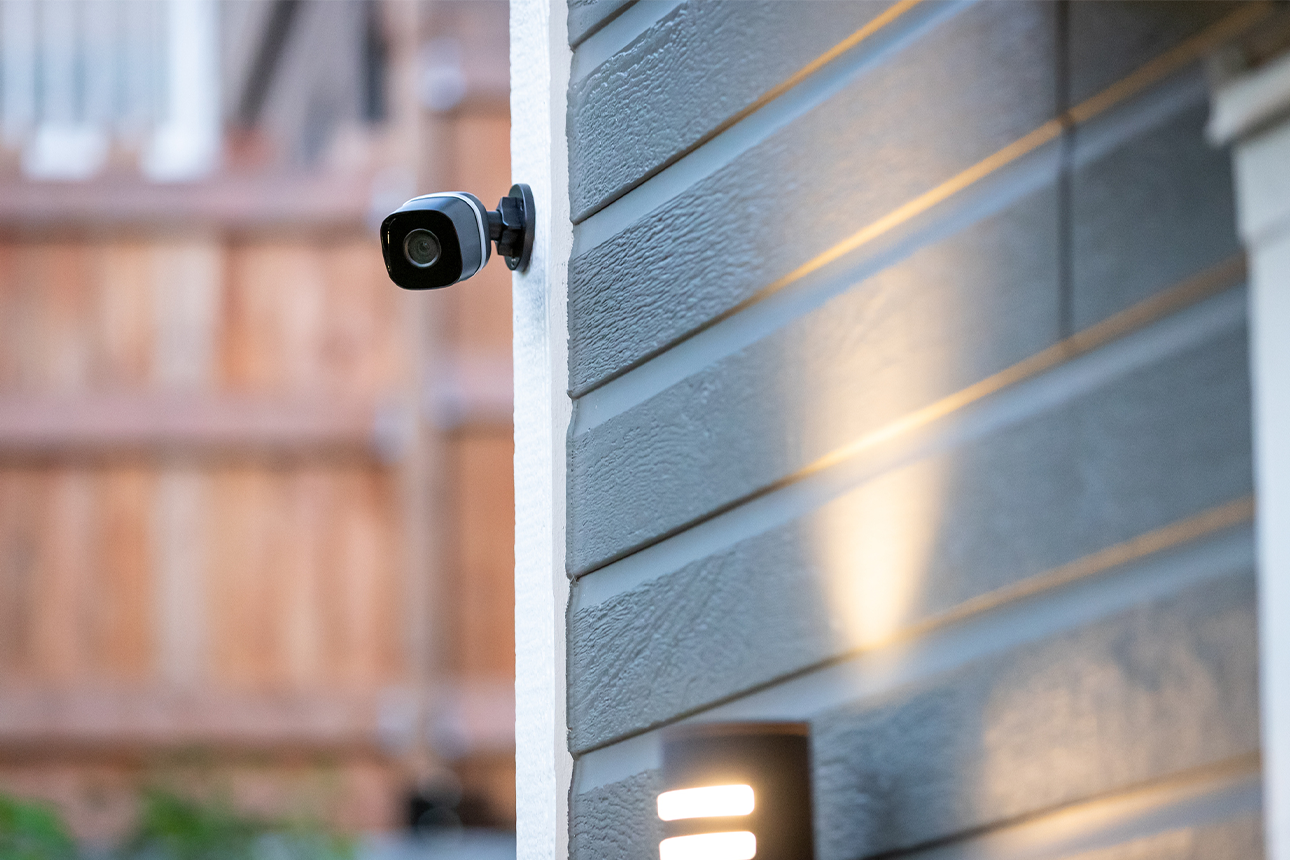
By Ruairi O'Shea
Former Investigative Writer | Kaituhi Mātoro
The emotional stress of organising a funeral and a lack of familiarity with the costs involved have seen funerals described as a “distress purchase” – a purchase that can lead to “bill shock”, with consumers’ grief and stress compounded by an unexpectedly large bill.
Here, we explore the costs involved in organising a funeral, ways to keep them down, some alternative options, and the financial assistance available when it comes to the cost of dying.

What will a funeral cost you?
The average cost of a funeral is between $8000 and $10000, according to a 2019 Ministry of Health report.
The Funeral Directors Association of New Zealand (FDANZ) said that, although $8000 to $10000 would be a decent ballpark for a modest funeral involving a cremation, it is very cautious about the idea of an ‘average’ funeral.
Rachel Benns, President of FDANZ, said, “averages mask the significant regional differences in some costs, particularly council costs. A council burial might be anything from $1000 to $8000 and it’s the same with cremation, with costs between $600 and $1100.”
Funerals are also highly individual. Benns said the best thing for consumers to do is “get an estimate of the costs” and make sure “they have conversations about what they need from the funeral director to get the funeral that best suits their needs.”
Funeral cost breakdown
There are significant regional variations in the cost of burials and cremations, and a range of different priced caskets. Professional services fees also vary widely from funeral director to funeral director.
In addition to these major costs, the funeral directors association advised there can be a range of other expenses, such as for chapel hire or live streaming the service.
Other expenses
It’s difficult to nail down the cost of an “average” funeral, but the FDANZ has a page on its website which outlines the major costs involved in organising a funeral, and how much you can expect to pay for them.
The FDANZ recommends contacting your local funeral director who can provide a written estimate and talk through your wishes and the associated costs which can be tailored to your budget.
The role of funeral directors
Most funeral services in New Zealand are carried out by funeral directors, who take responsibility for a range of tasks, from transporting and embalming the body, to handling administrative requirements for registering a death and arranging memorial services.
Benns said, “People in their time of grief, need to look to somebody to help them through the journey of someone passing away.”
Because many people have not had the experience of organising a funeral before, funeral directors can act as a guiding hand, Benns said. “Those families look to us as advisors so we can offer options, listen to what their needs are, and then be able to point them in the right direction, whether that’s the cemetery, or who to use as a celebrant, all those things that don't come top of mind if you haven't had a death in the family before.”
Agreeing a price with the funeral director
What a family wants from a funeral, and their budget, are highly individual, and these factors should be front of mind when engaging a funeral director, according to Benns.
“First and foremost, when you’re meeting with a funeral director, explain what needs and requirements you have, whether that’s budget requirements, or whether it’s specific things that are important to you around the funeral. Once you let the funeral director know that, they can tailor your options and choices to assist with the budget and what the needs are.”
This is important because price transparency is an issue within the sector. Sometimes funeral directors provide an estimate that is much lower than the final cost. This can lead to unexpectedly high bills and financial difficulty for grieving families. Benns, who is a working funeral director, provides her customers with an itemised bill, including a final cost, before the funeral takes place.
If you want to use a funeral director but are concerned about cost, you can choose which services you want them to provide, and which you do not.
“It’s important not to get caught up in feeling like you have to spend a fortune on catering, or to have $600 worth of flowers or flash printing on the order of service,” Benns said.
And there are ways people can pitch in on the “nice to haves”.
“Instead of purchasing flowers, you could do some cuttings from your own garden and bring them along. Instead of having a celebrant or a minister take the service, you could ask a friend or family member to do it.”
Lack of regulation for funeral directors
Funerals are big business, yet the sector is largely unregulated.
A funeral director must be registered with a local council, but this is for record-keeping. There are no grounds for refusing a registration application.
The sector is voluntarily self-regulated through membership in FDANZ, as well as New Zealand Independent Funeral Homes and the New Zealand Embalmers Association. Benns said that around 70% of funerals undertaken in New Zealand are through FDANZ-accredited funeral directors.
To join FDANZ, funeral directors must have a nationally recognised qualification in funeral directing and undergo ongoing training. But you do not have to be a member of FDANZ to act as a funeral director.
Outside of FDANZ, there are limited mechanisms for dealing with disputes that may arise over how a funeral has been conducted, or its price. Consumers’ primary protections come from the Consumer Guarantees Act, the Fair Trading Act 1986 and the Disputes Tribunal.
FDANZ has a formal complaints resolution procedure, but this only covers funeral directors who are accredited by the association. When a complaint is made, the association will investigate it and work toward a positive outcome. FDANZ does not consider complaints about funeral directors who are not members.
Can you organise a funeral for a loved one yourself?
When Frances Potter’s mother died, she had outlived everyone she knew except her immediate family. “There was no need for a huge funeral, just a private arrangement among family,” Frances said. “we just thought, why pay exorbitant fees, and get third parties involved when it's not necessary.”
Frances, an artist, made her mother’s casket herself, and her mother was cremated. All in all, she estimates that taking care of her mother’s affairs cost $1000. A long way short of the $10000 ballpark estimate commonly quoted for covering funeral costs.
Frances consulted www.diyfuneral.co.nz – a website which guides people through the process of conducting a funeral themselves – and felt she was up to the task.
“We were very practical about death. We weren’t squeamish. My sister is a nurse, she's seen plenty of dead bodies, so we weren't afraid of the idea of death and dealing with the body,” Frances said.
Frances understands that doing this is not for everyone, but she believes that it comes down to your emotional capacity for completing the required tasks and planning ahead.
"You have to have a degree of mental fortitude, and you have to be prepared to take responsibility for dealing with the body and transporting it. You've got to be willing to put up with the unpleasant aspects, and you've got to be ready to act quite quickly to make the arrangements that need to be made."
“A lot of people wouldn't want to do that themselves and they'll just pay someone else to do it. And that's fine. But for anyone who is capable, you can save yourself a lot of money by rolling your sleeves up and getting a bit practical.”
It’s not just about the money
For Frances, the reasons for looking after someone’s end-of-life needs go well beyond the money involved, allowing people to create a more authentic funeral that is more representative of their loved one. She sees it as an act of duty and love, and one which meant a lot to her.
“For myself and my sister, there was a tremendous sense of duty discharged. We felt that we had taken mum through this crucial end of life process exactly as she would have wanted us to. We felt like we'd been good daughters, we did our best, we rolled our sleeves up, and it was an act of love and respect.”
Frances accepts that this is not for everyone, and sees a role for funeral directors, but wants to empower people to take control of the process if they want to.
“You’ve just got to do what’s right for you. If you know that there’s no way you can handle a body, that’s absolutely fine, that’s what a funeral director is for, but it’s something that some of us want to undertake because of the meaning of it.”
Having constructed and decorated her mother's casket, and having done the same for a friend last year, Frances is passionate about empowering people to take control of the end-of-life process themselves, and has taken over the running of diyfuneral.co.nz from its founder Robert Belmont.
The website contains information on paperwork, transporting a body and caskets, to give you an idea of what’s involved in conducting a funeral yourself.
Help to pay for funeral expenses
Funerals are expensive, but financial assistance is available in some circumstances. We have provided some information on financial assistance below, but this is something that your funeral director should be able to help with, if you use one.
ACC
In the case of an accidental death, ACC can pay a funeral grant of up to $7491.95 towards funeral and memorial costs. In the case of a murder or manslaughter, $10000 is made available. This grant can be paid directly to a funeral director. If you’ve already paid, ACC can pay you back.
ACC also pays a survivor’s grant to those left behind by a death. Spouses and partners receive a grant of $8032.33, with $4016.18 paid to each child under 18 or other dependants. The survivor’s grant does not have to be spent on funeral costs, but it might help.
You can find more information on the funding available through ACC on its website.
WINZ
If you are the partner, child, parent or guardian of someone who ‘normally lived’ in New Zealand and has died, you may be able to access a funeral grant from WINZ.
This grant can be used to cover some funeral costs. It can go towards the cost of a casket, a burial plot, or a hearse among other costs, but it will not cover flowers, donations to musicians, or death certificates.
The funeral grant is means tested, and your income and assets, and the assets of the deceased, will affect how much assistance you will receive. If you are the deceased’s partner, and you are a parent with two or more children, your annual income must be less than $44,646.68 before tax to access a WINZ grant.
The maximum amount you can receive is $2445.37, but this depends heavily on your assets, and the assets of the deceased. You would only receive this amount if you are below the income threshold, and both yourself and the deceased had assets less than $2131.73.
You can find more information on the funeral grant at the WINZ website.

Stop unfair retirement village contracts
Retirement villages promise the good life in your golden years, however, the contracts are often heavily favour the village. We are calling for a fairer deal for retirement village residents.


